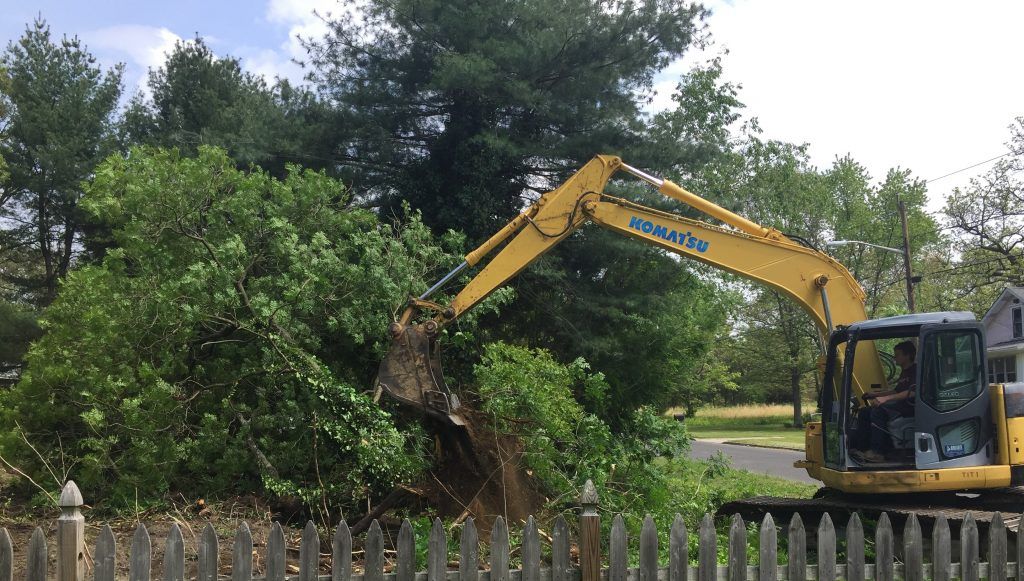Commercial Contractor Limitation of Actions
By Bob Incollingo
In my standard form of attorney-client agreement I include this paragraph:
“A disturbing recent trend in business is the use of contract terms which drastically shorten the time periods for bringing claims against the breaching party. You have the duty to notify me before retaining me if your contract contains such a clause. Under this agreement for legal services, you specifically assume the risk of any limitations period shortened by contract, where circumstances do not provide me with a commercially reasonable time to review and take appropriate action to address such issues.”
Of course, I’m personally disturbed only if you’re trying to hire me on to a ship that’s sailed. Otherwise, I’m just fine with the trend. Contractual limitation of actions clauses have very good reasons behind them, since evidence is perishable, and spoiled construction evidence is a byword. Covered over, removed, repaired, or otherwise spoiled construction evidence is just muck in any effort to get to the truth.
If you’re a contractor, right this minute you should be thinking, “This looks promising. How do I reduce the number of claims I can no longer fairly defend?” Here’s how, friend: See your lawyer, and ask whether you should insert a clause in your contract that eliminates the right to sue after a defensibly short time.
In New Jersey, generally speaking, you can sue for breach of a construction contract within six years after you discover the breach (but no later than ten years after the completion of work). N.J.S.A. 2A:14-1. Six years is the general rule, but does not apply to every situation, so be on your guard, especially if a supply contract is involved. The four year statute for the sale of goods may apply and there’s no extending the deadline for later discovery of breach. N.J.S.A. 12A:2-725.
Regardless of which deadline your plaintiff customer has to meet, as a potential defendant you would prefer to bar him after an earlier cutoff than the law allows. In commercial work this is fairly simple, but in a consumer contract things are much more complicated. New Jersey state law prohibits consumer contracts, warranties, notices and signs from including “any provision that violates any clearly established legal right of a consumer or responsibility of a seller ....” N.J.S.A. 56:12-15. Without prior advice of counsel I don’t recommend trying to cap the time in which a New Jersey consumer can sue.
Working for a commercial owner or contractor on a commercial project, you have a freer hand. Your attorney may counsel you to insert a clause like this into the general conditions of your agreement:
“11. Limitation of Actions. Because of the perishable nature of evidence in construction litigation, the agreed deadline for bringing suit by either party against the other for any matter arising out of or connected with this agreement shall be shortened to two (2) years from the last date of construction or, as applicable, expiration of the affected express warranty period, except where the claim concerns indemnification or contribution for third party claims.”
If your agreement provides for arbitration or other dispute resolution as a precondition to judgment, this clause would need to be revised. For reasons outside the scope of this article, you should not forget to include the carve-out that follows the word “except.” And, where the four year statute for the sale of goods under the Uniform Commercial Code applies, merchants may reduce the period of limitations to not less than one year in a commercial contract. N.J.S.A. 12A:2-725(a)(1). So, important note: whether you are a merchant supplier or not, legal drafting by a competent attorney means everything here. See a lawyer first.
The very purpose for a shortened contractual limitations period is that it effectively eliminates claims. Under present law, in the absence of a statute to the contrary, parties are free to contractually limit the time within which an action may be brought, as long as the contractual time is reasonable and does not violate public policy. Rodriguez v. Raymours Furniture Co., Inc., 225 N.J. 343 (2016). In the cited Rodriguez case, though, the New Jersey Supreme Court did find a violation of public policy, and refused to allow the contractual shortening of the two year statutory period of limitations for filing a claim under the New Jersey Law Against Discrimination to six months via private employment agreement.
What your New Jersey construction lawyer wants to do is to set up your contract so a reviewing court will find your limitation of actions provision to be clear in its terms, conspicuously placed in the agreement, reasonable and not contrary to any public policy. If you can pass this test, the court will more likely conclude that the provision is enforceable.
New Jersey construction lawyer Robert J. Incollingo is a Director of the Camden Business Association, and practices construction law, business law, and real estate law in Gloucester County, Burlington County, and Camden County, New Jersey from his office in Cherry Hill. More articles like this appear on RJILAW.com.
